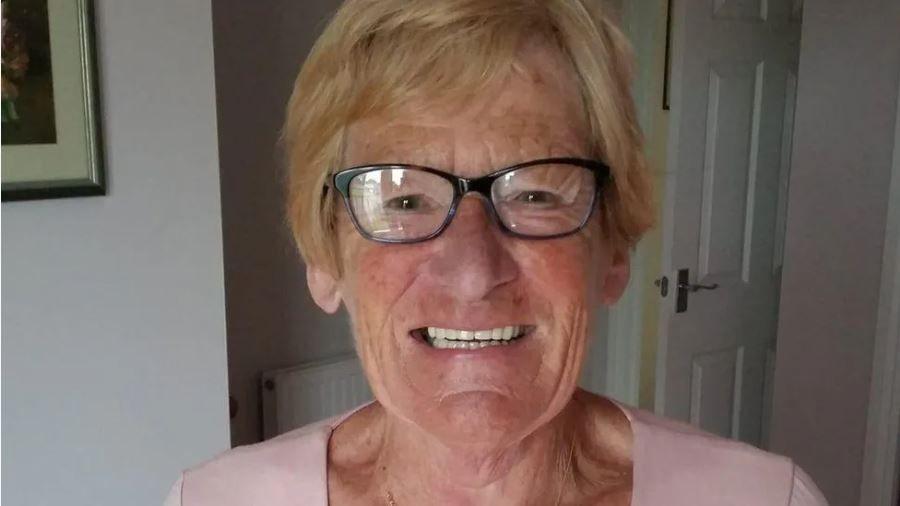Husband with dementia who killed wife will remain in hospital

Catherine Pryde died just a few weeks before their golden wedding anniversary
- Published
A man with severe dementia who killed his wife of 50 years in a violent attack that was "wholly out of character" will remain in hospital.
John Pryde, 77, had been accused of murdering his wife Catherine at their home in Fishcross, Clackmannanshire, in March last year.
However, he was declared unfit to stand trial due to his condition.
He will be kept at Forth Valley Royal Hospital in Larbert.
Man 'confused' after wife's body found in kitchen
- Published10 April 2024
Wife died in 'out of character' attack by husband with dementia
- Published11 April 2024
Judge Lord Arthurson formally acquitted Mr Pryde of the murder charge in April and ordered him to be detained at the State Hospital in Carstairs until a hearing on Wednesday at the High Court in Glasgow
The judge said: "With overwhelming unanimity, there is a clear recommendation that I make a compulsion order."
Pryde will be treated at Forth Valley Royal Hospital where the judge said he was receiving "exemplary care."
Pryde - who also uses the name Ian - had his attendance excused.

Catherine Pryde's body was found in the kitchen of the couple's home in Fishcross
Mrs Pryde's bloodstained body had been found on the kitchen floor of the couple's house.
The court heard the 74-year-old died as a result of blunt force trauma to her head, chest and neck.
She had cuts and bruising to her face, as well as 16 rib fractures and a fractured voicebox.
Lord Arthurson said that Mrs Pryde had sustained a brain injury that was similar to those seen in road traffic accidents.
He said it was "very clear" that the attack was out of character and that the couple "had enjoyed a loving and fulfilling relationship".
Mrs Pryde died a week before their golden wedding anniversary.
Blood had been found in rooms throughout the couple's home.
Mr Pryde, whose had been diagnosed with dementia in 2021, had alerted a neighbour to the body in his house and said he did not know who it was.
Questioned by police, the court heard that Mr Pryde could not understand what was happening and had no recollection of his wife’s death.
Psychiatrist Dr Prathima Apurva previously told an examination of the facts hearing that Pryde was "unable to appreciate the conduct and nature" of his actions.
Her opinion was that Mr Pryde lacked criminal responsibility due to the severity of his condition.